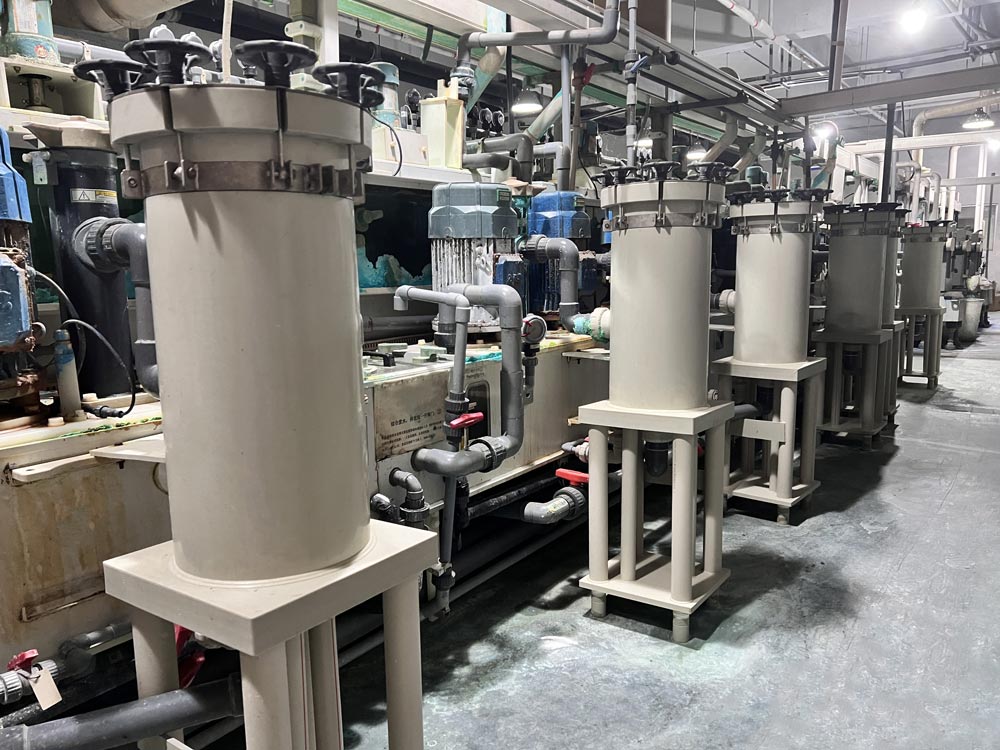
Electroplating Filter: Enhancing Efficiency and Purity in Metal Deposition Processes
# Electroplating Filter: Enhancing Efficiency and Purity in Metal Deposition Processes
Electroplating is a critical process in various industries, from electronics to automotive manufacturing. It involves depositing a thin layer of metal onto a substrate to enhance its properties, such as corrosion resistance, conductivity, or aesthetic appeal. However, achieving high-quality electroplating results requires more than just the right chemicals and equipment. One often-overlooked yet essential component is the electroplating filter.
## The Role of Electroplating Filters
Electroplating filters play a pivotal role in maintaining the purity and efficiency of the plating solution. During the electroplating process, contaminants such as dust, metal particles, and organic residues can accumulate in the solution. These impurities can lead to defects in the plated surface, such as pits, roughness, or uneven coating. By removing these contaminants, electroplating filters ensure a smooth and consistent metal deposition.
### Types of Electroplating Filters
There are several types of filters used in electroplating, each designed to address specific challenges:
– **Cartridge Filters**: These are disposable filters that capture particles as the plating solution passes through them. They are easy to replace and are ideal for removing fine particulates.
– **Bag Filters**: Made from durable materials, bag filters are suitable for capturing larger particles and are often used in high-flow systems.
– **Depth Filters**: These filters use a thick, porous medium to trap contaminants throughout their structure, making them effective for removing both large and small particles.
– **Membrane Filters**: Known for their precision, membrane filters can remove even the smallest particles, ensuring the highest level of solution purity.
## Benefits of Using Electroplating Filters
Incorporating high-quality filters into the electroplating process offers numerous advantages:
– **Improved Plating Quality**: By removing contaminants, filters help achieve a smoother, more uniform metal coating, reducing the need for rework.
– **Extended Bath Life**: Clean plating solutions last longer, reducing the frequency of bath replacement and lowering operational costs.
– **Enhanced Efficiency**: Filters prevent clogging and maintain consistent flow rates, ensuring the electroplating process runs smoothly.
– **Environmental Benefits**: By reducing waste and minimizing the need for chemical replacements, filters contribute to more sustainable manufacturing practices.
## Choosing the Right Electroplating Filter
Selecting the appropriate filter for your electroplating process depends on several factors, including the type of contaminants present, the flow rate of the solution, and the desired level of filtration. It’s essential to consult with a filtration expert to determine the best solution for your specific needs.
### Maintenance and Replacement
Regular maintenance of electroplating filters is crucial to their effectiveness. Over time, filters can become clogged with contaminants, reducing their efficiency. It’s important to monitor filter performance and replace them as needed to ensure consistent plating quality.
## Conclusion
Electroplating filters are indispensable tools in the metal deposition process. By ensuring the purity of the plating solution, they enhance the quality, efficiency, and sustainability of electroplating operations. Whether you’re working in electronics, automotive, or any other industry that relies on electroplating, investing in the right filtration system can make a significant difference in your results.
Keyword: electroplating filter